Sharing Cities is an urbanization.org project that involves creating a database of urban streets for educational and research purposes. The pilot phase included eight students, each representing different cities from seven countries. Each city was experienced and learned through drawings, and data collected for about 200 parameters that gave more information about the city and enabled comparison and analysis of different cities.
Starting from a large to small scale, each city structure was first of all examined in terms of history, growth, planning regulations and general characteristics. Different streets which represented the major street types available in each city were then selected. These streets were further analysed and used as references for the database through out the rest of the project.
Abuja is the capital city of Nigeria with a population of about 2 444 000 inhabitants. It is located right in the centre of the country and serves as the administrative headquarters. The four streets selected differ both in use and design, and form the four levels of city street infrastructure, which includes: highway, arterial roads, collector roads and local roads.
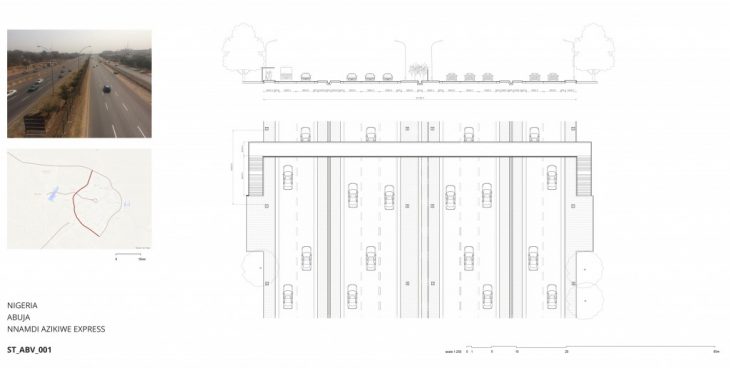
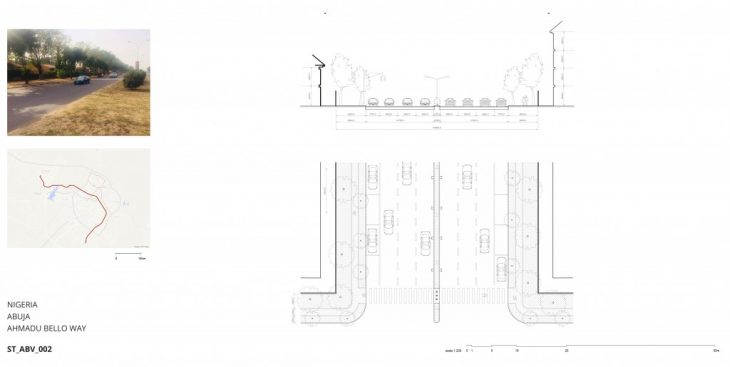
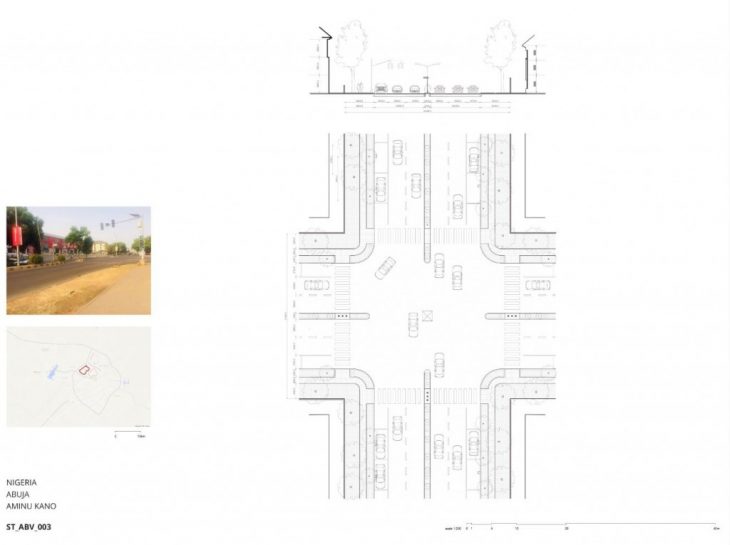
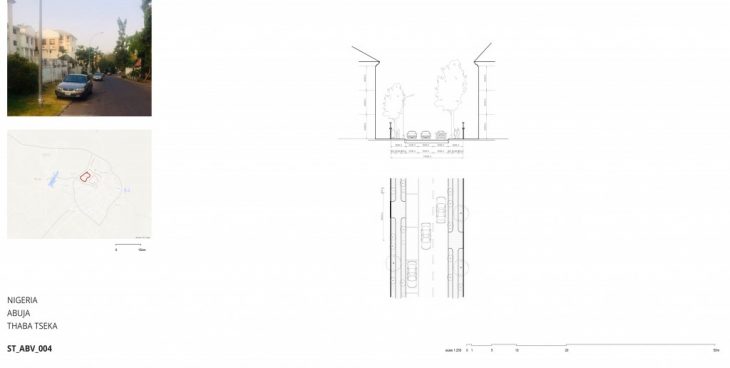
Information about the city urban fabric helped in comparing streets, both within a city and amongst participating cities. Below are examples of such comparisons.
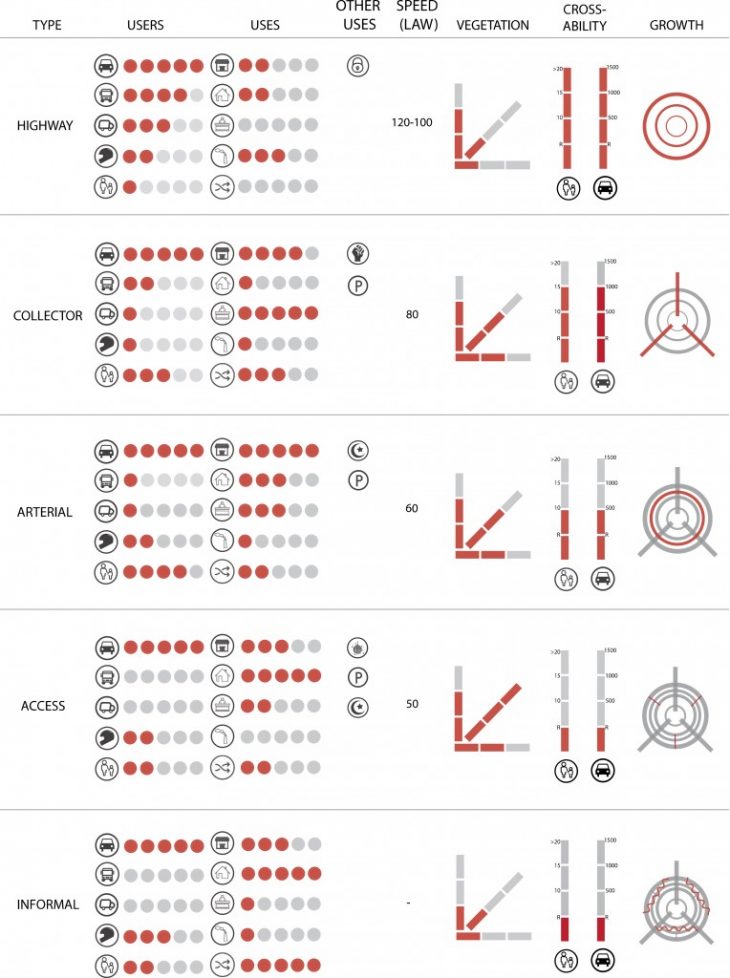
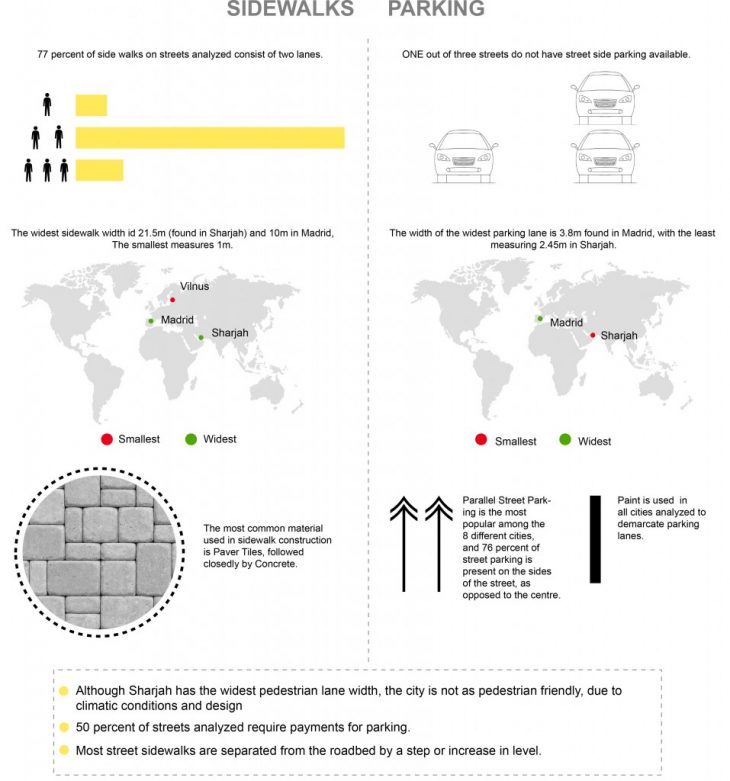 Conclusion
Conclusion
The Sharing Cities project hopes to become the wikipedia for the urban environment. It is the first of its kind and a very ambitious vision. One thing that has been re-learned in participating in this project, is that the way our cities are designed reflects our culture and values. Over time, these spaces define how we live, and either limit or enhance our experience of the urban environment.
ABUJA: SHARING CITIES is a project of IAAC, Institute for Advanced Architecture of Catalonia, developed at MaCT (Master in City & Technology),
2017-18 by:
Students: Venessa Williams
Faculty: Vicente Guallart, Marta Milà